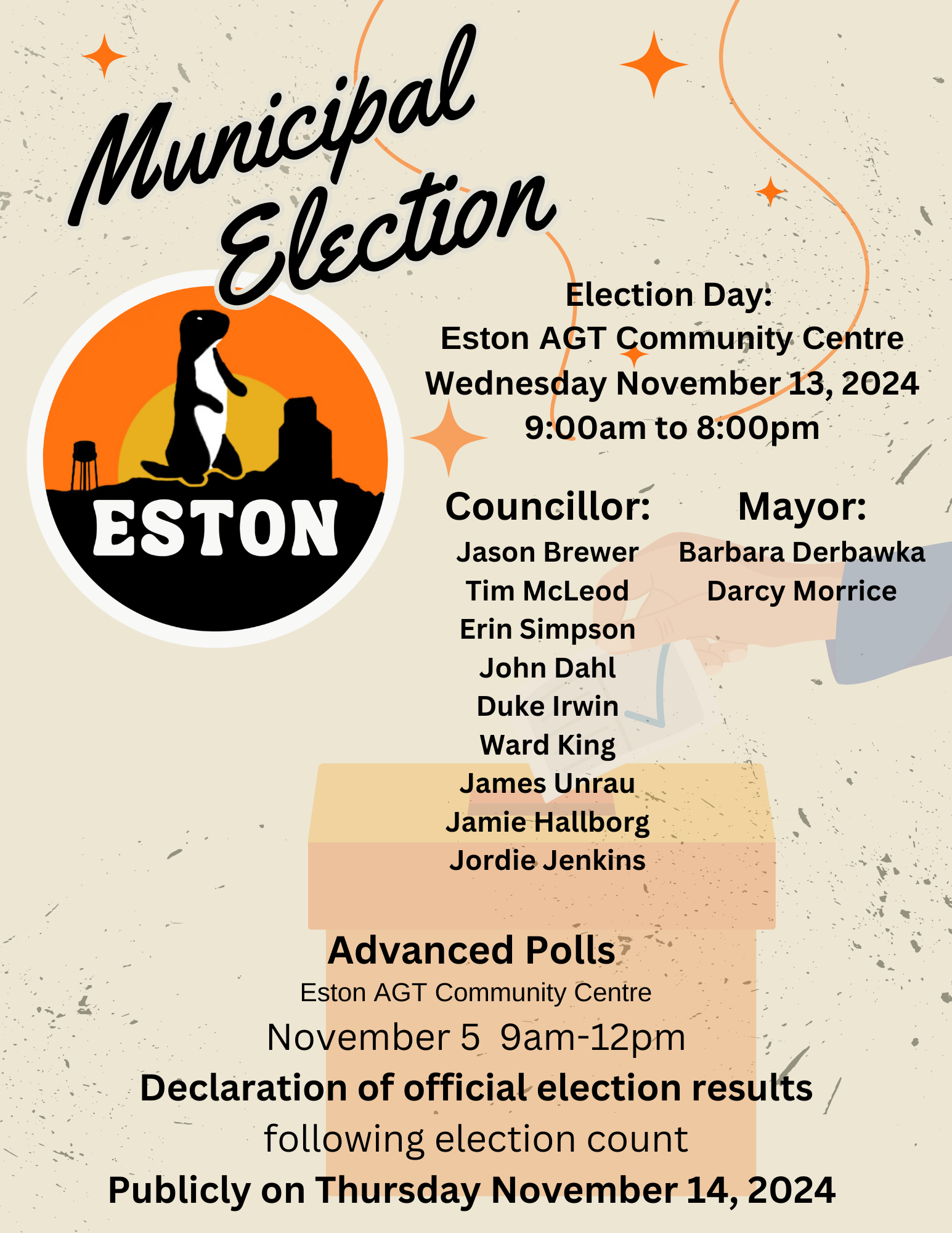2024 Election is coming up! Wednesday, November 13, 2024
Candidate 1 – Councillor – Jordie Jenkins
Candidate 2 – Councillor – Ward King
Candidate 3 – Councillor – John Dahl
Candidate 4 – Councillor – Jamie Hallborg
Candidate 5 – Councillor – Erin Simpson
The Role of Head of Council:
The mayor has a prominent and very public profile. Many residents will have high and often varied expectations for the mayor and the council must find a way to balance these expectations and special responsibilities. Decisions, however, are made by council as a whole. The mayor does not have any more power than any other member of council to make decisions on behalf of the Town. Each council member has one vote.
The Role of Chief Administrative Officer (CAO/Administrator):
The CAO/Administrator’s main role is to advise the council and make recommendations on all facets of the Town’s operations. The CAO/Administrator coordinates, leads, and directs department heads and employees in the administration of the Town in accordance with the policies and plans approved by the council. The CAO/Administrator is responsible for the hiring, suspension, and dismissal of all employees of the municipality with support provided by council.
Council-Staff Relationship Roles:
The Town of Eston recognizes the importance of good council-staff relations. The relationship between council and staff is a vital component of an effective municipal government. Staff and council rely on one another to move the Town forward. Both staff and council provide leadership; council provides political leadership, while staff provide leadership in implementing council decisions. Operational policies and procedures recognize the experience and expertise of staff and encourage communication between staff and council.



